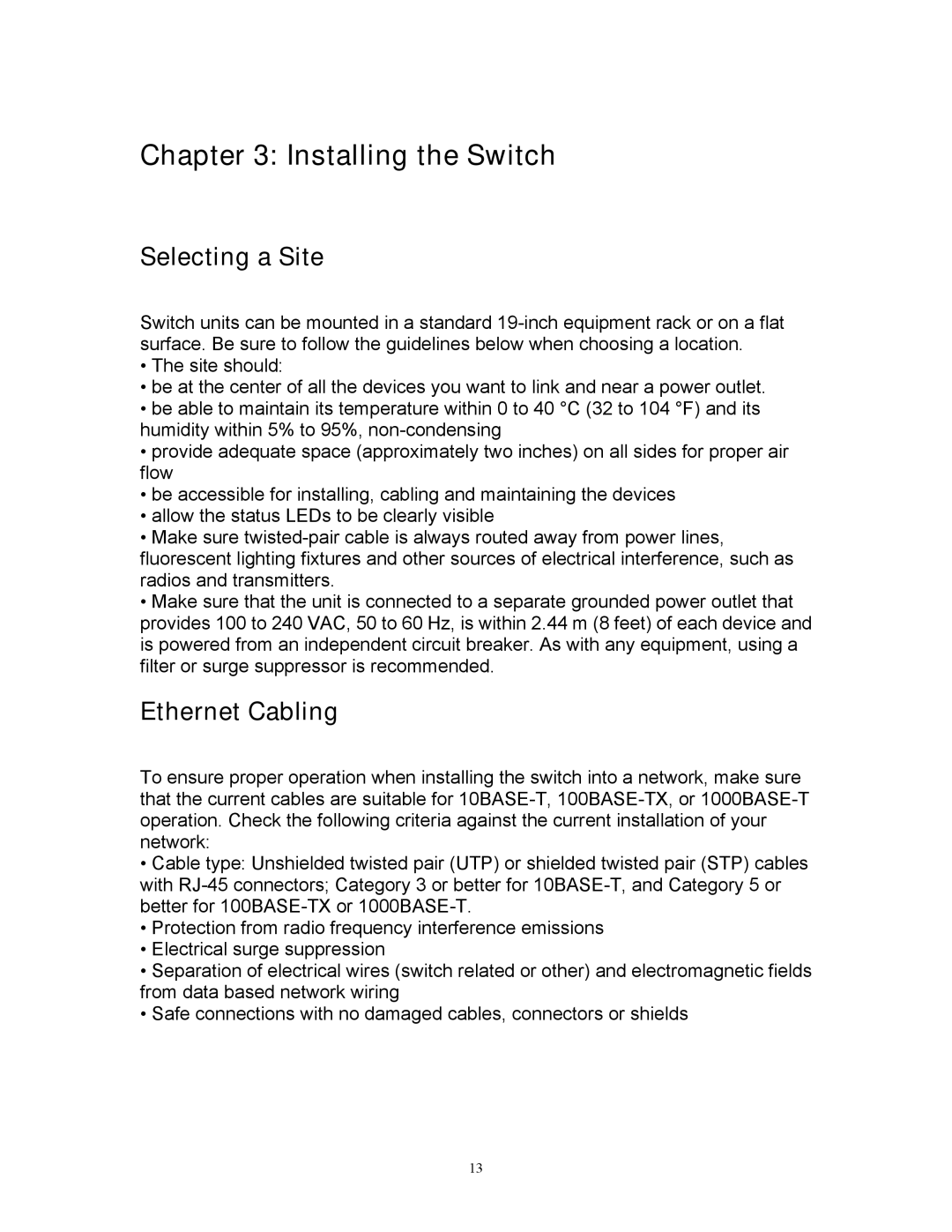Chapter 3: Installing the Switch
Selecting a Site
Switch units can be mounted in a standard
•The site should:
•be at the center of all the devices you want to link and near a power outlet.
•be able to maintain its temperature within 0 to 40 °C (32 to 104 °F) and its humidity within 5% to 95%,
•provide adequate space (approximately two inches) on all sides for proper air flow
•be accessible for installing, cabling and maintaining the devices
•allow the status LEDs to be clearly visible
•Make sure
•Make sure that the unit is connected to a separate grounded power outlet that provides 100 to 240 VAC, 50 to 60 Hz, is within 2.44 m (8 feet) of each device and is powered from an independent circuit breaker. As with any equipment, using a filter or surge suppressor is recommended.
Ethernet Cabling
To ensure proper operation when installing the switch into a network, make sure that the current cables are suitable for
•Cable type: Unshielded twisted pair (UTP) or shielded twisted pair (STP) cables with
•Protection from radio frequency interference emissions
•Electrical surge suppression
•Separation of electrical wires (switch related or other) and electromagnetic fields from data based network wiring
•Safe connections with no damaged cables, connectors or shields
13
